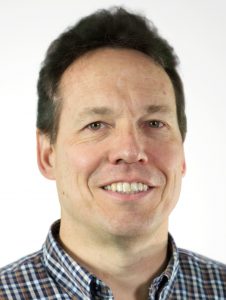Michigan Tech’s Department of Mathematical Sciences will host the NSF-CBMS Summer Workshop on Parallel Time Integration from August 1 – 5th, 2022. The free workshop will feature ten lectures by Martin J. Gander, Université de Genève, an expert in parallel time integration. The primary focus of the proposed parallel-in-time workshop is to educate and inspire researchers and students in new and innovative numerical techniques for the parallel-in-time solution of large-scale evolution problems on modern supercomputing architectures, and to stimulate further studies in their analysis and applications. This workshop aligns with the National Strategic Computing Initiative (NSCI) objective: “increase coherence between technology for modeling/simulation and data analytics.”
Register for the workshop today. Registration closes on July 1, 2022.
More on the parallel-in-time workshop.
Computational simulations are a key part of scientific research for government, industry, and academia, complementing laboratory experimentation and theory. However, changes in computer architectures are leading to future supercomputers that will have billions of processors, as opposed to millions today. Further, each individual processor will be no faster than individual processors today. Thus, these next-generation machines will no longer automatically provide a speedup to existing computational simulations. New mathematical algorithms must be developed and deployed that can utilize this unprecedented number of processors.
One such class of mathematical algorithms, parallel-in-time methods, is the subject of this workshop. In particular, parallel-in-time methods add a new dimension (time) of parallelism and thus allow existing computer models to be extended to next-generation supercomputers. The range of potential applications for parallel-in-time to dramatically speed up is vast, e.g., computational molecular dynamics (e.g., protein and DNA folding), computational biology (e.g., heart modeling), computational fluid dynamics (e.g., combustion, climate, and weather), and machine learning.
Using appropriate mathematical methodologies from the theory of partial differential equations in a functional analytic setting, numerical discretizations, integration techniques, and convergence analyses of these iterative methods, conference participants will be exposed to the numerical analysis of parallel-in-time methodologies and their implementations. The proposed topics include multiple shooting type methods, waveform relaxation methods, time-multigrid methods, and direct time-parallel methods. These lectures will be accessible to a wide audience from various disciplines, including mathematics, computer science and engineering.
About your lecturer, Professor Martin J. Gander
Professor Martin J. Gander is a Professor of Mathematics at the University of Geneva, Switzerland. He is an internationally recognized expert in the area of Domain Decomposition Methods (DDM) and time-parallel integrators, among many other research interests. Professor Gander has published over 200 manuscripts and serves on the editorial boards of various journals, including SIAM Review, Computers and Mathematics with Applications, and the Electronic Transactions in Numerical Analysis. Professor Gander has also published two textbooks, Scientific Computing: an Introduction using Maple and MATLAB and Numerical Analysis of Partial Differential Equations using Maple and MATLAB.
Professor Gander is a highly accomplished and engaging lecturer, winning several teaching awards over his career. Professor Gander recently conducted a short course on Schwarz methods in August 2015, a short course on Time Parallel integration at the CEMRACS Summer School 2016: Numerical challenges in parallel scientific computing, and has given over 120 plenary lectures over his career. “In addition to being a leading researcher in the area of parallel time integrators, Professor Gander has influenced many lives through his commitment to training the next generation of scientists and engineers. We are so grateful that Professor Gander will be the principal lecturer at our NSF-CBMS summer school,” says Benjamin Ong, conference organizer and associate professor of mathematical sciences.
Thank you to our sponsors
The conference organizers, Professor Benjamin Ong (Michigan Technological University) and Professor Jacob Schroder (University of New Mexico) thank the sponsors for making this free conference with travel support possible: the National Science Foundation (NSF), Conference Board of the Mathematical Sciences, Michigan Technological University, Igor Kliakhandler, and the Time-X H2020 project.
